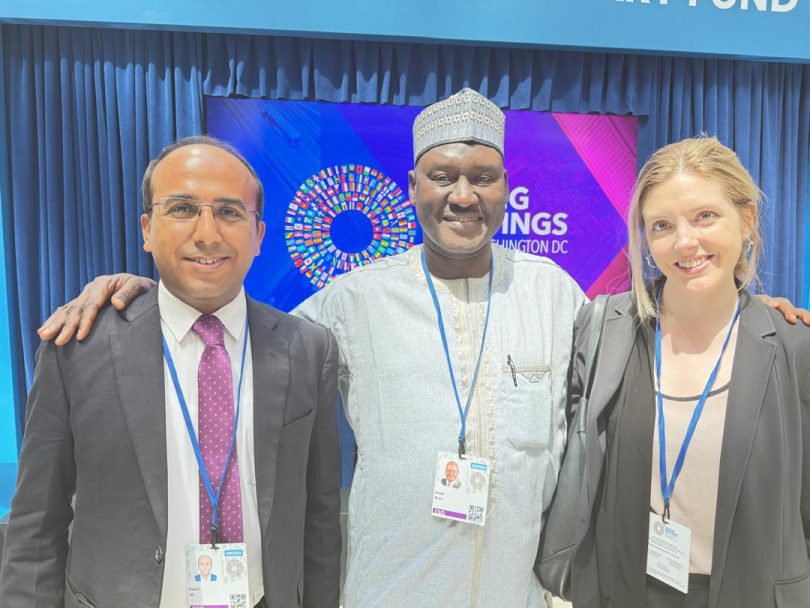Nigeria’s rising debt, poor fiscal discipline, and misplaced policy priorities could plunge the nation into deeper economic turmoil if urgent reforms are not undertaken, the Executive Director of the Civil Society Legislative Advocacy Centre (CISLAC) and Head of Transparency International Nigeria, Auwal Musa Rafsanjani, has warned.
By Chimezie Godfrey
Nigeria’s rising debt, poor fiscal discipline, and misplaced policy priorities could plunge the nation into deeper economic turmoil if urgent reforms are not undertaken, the Executive Director of the Civil Society Legislative Advocacy Centre (CISLAC) and Head of Transparency International Nigeria, Auwal Musa Rafsanjani, has warned.
Speaking on The Policy with Leah during the sidelines of the 2025 IMF/World Bank Annual Meetings in Washington D.C., Rafsanjani said Nigeria’s debt trajectory has become “unsustainable and reckless,” stressing that the country’s borrowings no longer serve developmental purposes.
“Most of the loans we take are not for development but for consumption,” he said. “There is little or no accountability around them. Civil society must be involved in monitoring these debts, especially when even lawmakers lack access to full disclosure.”
He lamented that Nigeria’s growing dependence on borrowing to finance recurrent expenditure was evidence of poor fiscal discipline, noting that “many of these debts do not translate to tangible benefits for citizens.”
Rafsanjani expressed worry that the removal of subsidies in healthcare, education, and transportation has worsened the suffering of ordinary Nigerians. “It is ironic that while developed nations continue to subsidize critical services, we are removing support for the poor under the guise of reforms,” he said.
He urged President Bola Tinubu’s administration and state governors to ensure full transparency in the management of fuel subsidy savings, insisting that the funds must directly benefit citizens. “The fuel subsidy savings must also be transparently accounted for by governors,” he said. “These funds belong to the people and must be used to improve healthcare, education, and infrastructure, not to enrich political elites.”
Rafsanjani also criticised what he called the “extravagant lifestyle of public officials” amid growing poverty and unemployment. “You cannot expect development assistance from abroad while living lavishly at home,” he said. “Ministers abroad fly economy class; in Nigeria, one official moves with 20 cars. That kind of waste is unsustainable.”
He noted that unless the government takes bold steps to reduce the high cost of governance, improve revenue generation, and cut waste, the nation’s economic future remains bleak.
According to him, Nigeria must begin to explore technology-driven governance systems, especially Artificial Intelligence (AI), to strengthen transparency and accountability in public spending. “AI can help track budgets, automate audits, and detect financial leakages,” he stated, urging the government to invest in digital infrastructure, energy, and human capital to sustain such reforms.
Rafsanjani called on state governments to increase internally generated revenue (IGR) instead of relying solely on monthly allocations from the Federation Account. “The recent rise in FAAC allocations should translate into better living conditions, not more white elephant projects,” he cautioned.
He concluded by urging Nigerian leaders to “rethink governance” and adopt sustainable economic policies that prioritise people over politics. “Nigeria has the resources, talent, and capacity to develop,” he said, “but without accountability and fiscal discipline, the future remains uncertain.”

